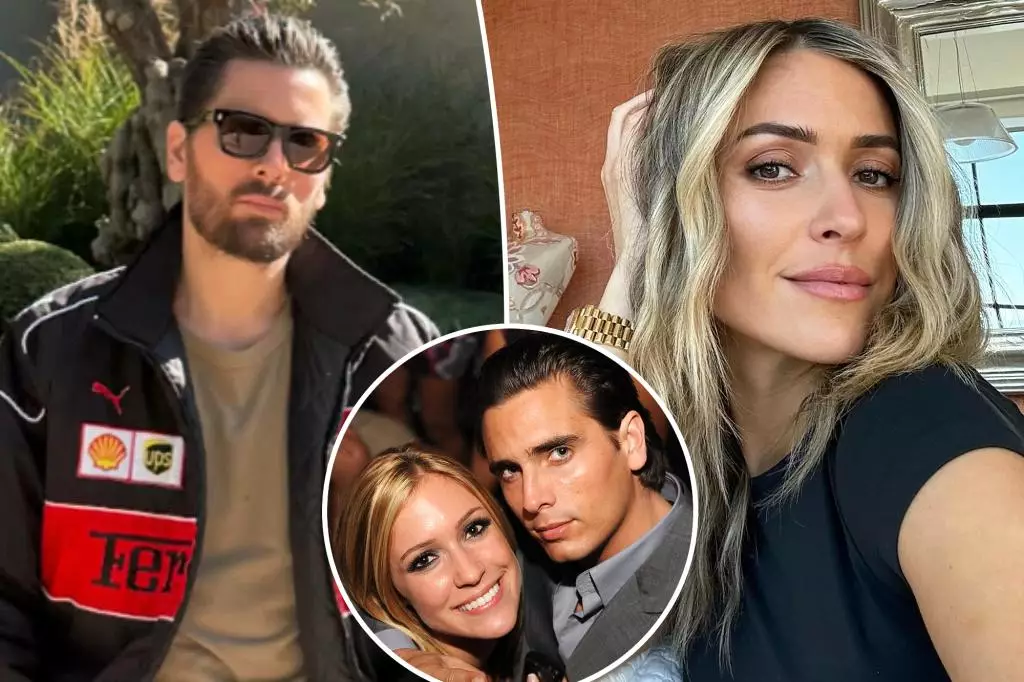In the world of celebrity gossip, few issues can stir up public interest quite like personal disputes between former friends. Recently, Scott Disick, known for his role on “Keeping Up With the Kardashians,” found himself at the center of a brewing controversy when Kristin Cavallari revealed private text messages from him during her podcast. The implications of Cavallari’s actions have sparked a deeper conversation about boundaries in relationships, the psychology behind perceived manipulation, and the blurred lines of public and private life in the digital age.
The private exchange, which Cavallari portrayed as manipulative during her podcast, elicited a strong emotional response from Disick, who perceived the disclosure as disrespectful. An insider close to Disick stated that he was baffled by her actions, taking issue with how personal communication was transformed into public spectacle. This incident not only illustrates the intensity of their past relationship but also underscores the responsibilities individuals hold when discussing private matters, especially in public forums.
Cavallari’s characterization of Disick’s messages as “the most manipulative” was particularly striking. She expressed that the intent behind the message struck her as a classic case of manipulation, raising questions about what defines manipulation in relationships. Disick’s intention, as he claims, was simply to reach out and reconnect, but Cavallari interpreted it through a lens tainted by past grievances, particularly the rumors that surfaced after their brief association in Las Vegas.
Disick’s texts indicated a desire for reconnection, bridging the gaps forged by time and circumstance. By contrast, Cavallari’s harsh interpretation of his motives reveals the complexities that arise when past friendships become littered with unresolved conflict. The fallout suggests an inherent human vulnerability—the challenge of trusting others after being hurt. While Disick may have genuinely sought to catch up, Cavallari’s reaction is a reminder that emotional wounds can distort our perceptions of others’ intentions.
In the current age, social media acts as an amplifier, transforming private disputes into public drama. Cavallari’s decision to disclose personal texts on a podcast is emblematic of a broader trend among celebrities. The lines separating private life from public persona are becoming increasingly porous. Public figures often grapple with the repercussions of their actions in the limelight, leading to both amplified scrutiny and a loss of privacy.
This incident raises ethical questions regarding the sharing of private conversations, especially when those exchanges have profound emotional weight. Cavallari’s comments about the “interesting timing” of Disick’s outreach, coupled with her ongoing critiques of the Kardashian clan on her podcast, suggest a calculated decision to leverage their interaction for entertainment value, further weaving the fabric of public drama.
The Dynamics of Personal Relationships
Disick and Cavallari’s interactions bring to light the intricacies of friendships that evolve over time. The shifting dynamics of their relationship—once friendly, now fraught with tension—reflect the challenges many experience. Disick, as described by his associates, reached out with a hopeful mindset, perhaps trying to revitalize a past camaraderie. Conversely, Cavallari’s dismissive stance illustrates the friction that arises from unresolved issues.
The relationship’s history adds layers of complexity, especially considering the past allegations and their damage to both parties’ reputations. Cavallari’s actions might be viewed as a protective reflex, wielding past injustices as armor against perceived slights. The question remains: can friendships survive such turbulence? Disick’s unanticipated shock at Cavallari’s reaction hints at the unpredictability of interpersonal connections, where one party may perceive attempts at reconciliation as a threat.
Cavallari’s declaration of being in her “villain era” encapsulates her attempt to reclaim her narrative amidst chaos. The phrase evokes a cultural trend—embracing a controversial persona in an effort to self-Build and assert autonomy. While the fallout from Disick’s outreach has sparked a media frenzy, it also offers both parties an opportunity for self-reflection and growth.
Ultimately, the Disick-Cavallari saga is a poignant reminder of the frailty of relationships under social scrutiny. As both navigate their individual journeys against a backdrop of fame, their saga underscores the importance of communication, the responsibilities of sharing, and the age-old question of whether genuine connections can withstand the trials of time and public perception.

